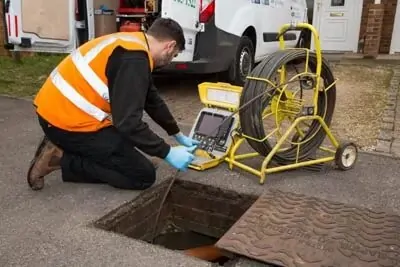Self-Employed Mortgage Guide: How to Get Approved in the UK (2025 Edition)
Are you self-employed and looking for a mortgage in the UK? This expert 2025 guide covers how to get a mortgage with no payslips, what documents you need, and which lenders are most flexible.

 Introduction: Yes, You Can Get a Mortgage if You’re Self-Employed
Introduction: Yes, You Can Get a Mortgage if You’re Self-Employed
Gone are the days when self-employed professionals were locked out of the property market. In 2025 more UK lenders than ever are prepared to offer self-employed mortgages —as long as you can prove affordability.
Whether you're a freelancer contractor company director or sole trader this guide explains:
How to get a mortgage as self-employed in the UK
What documents you need if you don’t have payslips
Which lenders are more flexible
How to improve your chances of approval
Common mistakes to avoid

 Who Counts as Self-Employed for a Mortgage?
Who Counts as Self-Employed for a Mortgage?
Lenders consider you self-employed if you earn your primary income from a business you control (usually 25%+ ownership).
This includes:
Sole traders
Freelancers
Contractors (short or long-term)
Directors of limited companies
Partners in a business
CIS (Construction Industry Scheme) workers
Gig economy and digital entrepreneurs
If you don’t get regular payslips from an employer and your income fluctuates—this guide is for you.
 What Documents Do You Need for a Self-Employed Mortgage?
What Documents Do You Need for a Self-Employed Mortgage?
Unlike employed applicants with payslips and P60s you’ll need to demonstrate income stability and affordability in other ways.
Most lenders will ask for:
Document Type | Details |
|---|---|
SA302s (HMRC tax calculations) | 2–3 years preferred 1 may suffice |
Tax Year Overviews (HMRC) | Must match SA302s exactly |
Business accounts | Signed by a qualified accountant |
Bank statements (personal & biz) | Last 3–6 months |
Proof of deposit | Savings gifts or sale of asset |
Contract letters or invoices | For contractors/freelancers |
Tip: Download SA302s and overviews directly from your HMRC online account to speed things up.
 How Much Can You Borrow if You're Self-Employed?
How Much Can You Borrow if You're Self-Employed?
Most UK lenders offer 4 to 4.5x your average annual income (pre-tax for sole traders salary + dividends for Ltd company directors).
Examples:
Sole trader earning £40 000: potential mortgage = £160 000–£180 000
Ltd company director with £20k salary + £30k dividends = £200 000–£225 000
 Some lenders may average your last 2–3 years or use the most recent year if income is rising.
Some lenders may average your last 2–3 years or use the most recent year if income is rising.
 Best Lenders for Self-Employed Mortgages (2025)
Best Lenders for Self-Employed Mortgages (2025)
While most major banks now cater to self-employed applicants some are more flexible than others.
More flexible lenders include:
Kensington – good for freelancers with 1 year of accounts
Metro Bank – accepts 1-year trading history in some cases
Aldermore – specialist in complex or irregular income
Accord Mortgages – helpful for sole traders with gaps
Halifax HSBC NatWest – mainstream options with solid track records
Use a whole-of-market mortgage broker with self-employed experience to access the best deals for your setup.
 What If You Have No Payslips or a Short Trading History?
What If You Have No Payslips or a Short Trading History?
Don’t panic.
You can still get a mortgage with:
1 year of trading history (some lenders accept this)
Strong affordability and deposit
Proof of ongoing contracts or repeat clients
A good credit score and minimal debt
 If you're recently self-employed but have prior experience in the same field some lenders may consider your full income more favourably.
If you're recently self-employed but have prior experience in the same field some lenders may consider your full income more favourably.
 How Much Deposit Do You Need as a Self-Employed Buyer?
How Much Deposit Do You Need as a Self-Employed Buyer?
Credit Profile | Minimum Deposit |
|---|---|
Good credit strong income | 5–10% (e.g. 90–95% LTV) |
Mild credit issues | 15%+ |
Recent trading history | 15–20%+ preferred |
 The bigger your deposit the better your mortgage rate and the more lenders you’ll qualify with.
The bigger your deposit the better your mortgage rate and the more lenders you’ll qualify with.
 Top Tips to Improve Approval Chances
Top Tips to Improve Approval Chances
 Get your SA302s and tax overviews ready in advance
Get your SA302s and tax overviews ready in advance Use an accountant to prepare professional accounts
Use an accountant to prepare professional accounts Avoid new credit applications before applying
Avoid new credit applications before applying Register on the electoral roll at your current address
Register on the electoral roll at your current address Reduce unnecessary business expenses (if they lower your taxable income)
Reduce unnecessary business expenses (if they lower your taxable income)
 What If You're Declined?
What If You're Declined?
Being rejected by one lender doesn’t mean you can’t get a mortgage .
Always apply through a broker who understands self-employed applications and can approach the right lenders the first time.
 Self-Employed Mortgage Mistakes to Avoid
Self-Employed Mortgage Mistakes to Avoid
 Relying on “net profit” when lenders want “gross income”
Relying on “net profit” when lenders want “gross income” Filing artificially low profits to save tax before applying
Filing artificially low profits to save tax before applying Failing to declare consistent income from contracts or freelance gigs
Failing to declare consistent income from contracts or freelance gigs Applying to banks with strict criteria without broker support
Applying to banks with strict criteria without broker support
 Tools to Help You Budget
Tools to Help You Budget
With WiseNest you can:
Track your documents in one place
Use smart calculators tailored to self-employed income
Upload survey reports and get clear AI summaries
Stay on top of deadlines for remortgages or product switches
 Create your free WiseNest account here to simplify your mortgage journey.
Create your free WiseNest account here to simplify your mortgage journey.
 Summary: Key Takeaways for Self-Employed Mortgages in 2025
Summary: Key Takeaways for Self-Employed Mortgages in 2025
Step | Action |
|---|---|
Check affordability | Based on average income over 1–3 years |
Prepare documentation | SA302s overviews accounts statements |
Use a broker | Essential for accessing flexible lenders |
Save a larger deposit | 10–15% improves approval odds |
Maintain credit health | Keep debts low avoid new credit before applying |
 Final Word: Being Self-Employed Shouldn’t Stop You from Owning a Home
Final Word: Being Self-Employed Shouldn’t Stop You from Owning a Home
Yes getting a mortgage when self-employed takes a bit more paperwork but it’s absolutely possible. With the right documentation broker support and a smart approach you can buy or remortgage successfully in 2025.
 Join WiseNest for free to access self-employed tools document tracking and expert insights tailored to your journey.
Join WiseNest for free to access self-employed tools document tracking and expert insights tailored to your journey.
Editorial Standards & Expertise

WiseNest Editorial Team
Our expert editorial team consists of seasoned technology professionals, business strategists, and digital transformation specialists with over 15 years of combined experience in helping businesses navigate the digital landscape.
This content is optimized to answer these questions comprehensively.
Can I get a mortgage if I’m self-employed in the UK?
Yes. Lenders offer mortgages to self-employed people, including sole traders, freelancers, and directors, if you can prove income and affordability.
What documents do I need for a self-employed mortgage?
Most lenders require SA302s, tax year overviews, business accounts, and bank statements. Some also request contracts or invoices.
Can I get a mortgage with no payslips in the UK?
Yes. Self-employed applicants don’t need payslips. Instead, use tax documents and accounts to prove income.
How many years of accounts do I need for a mortgage?
Most lenders prefer 2–3 years, but some will accept just 1 year if you have a strong profile or use a specialist lender.
How much can I borrow if self-employed?
Usually 4–4.5 times your average income over the last 2–3 years. Lenders may use salary + dividends or gross profit, depending on your structure.
Can I get a mortgage with a bad credit history and self-employed income?
Yes, but you may need a larger deposit and a specialist lender. A broker can guide you to the right products.
Which UK lenders are best for self-employed mortgages?
Top options in 2025 include Kensington, Aldermore, Metro Bank, Halifax, and Accord. Always compare through a broker.
Join 10,000+ Smart
First-Time Buyers
Get expert homebuying guidance, AI-powered document analysis, and step-by-step support for your first property purchase.



Growing community
Already have an account? Sign in here
Related Articles
Continue exploring our insights and tips
![What Is Indemnity Insurance and When Might You Need It? [2025 UK Buyer’s Guide]](https://a.storyblok.com/f/335762/2560x1707/d026575128/what-is-indemnity-insurance-scaled.jpg)
What Is Indemnity Insurance and When Might You Need It? [2025 UK Buyer’s Guide]
Buying a home in the UK? Discover what indemnity insurance is, when it’s needed, typical costs, and how it protects buyers and lenders from legal risks in property transactions.
![What Surveyors Don’t Check: Common Misunderstandings Every UK Homebuyer Should Know [2025 Guide]](https://a.storyblok.com/f/335762/352x240/c7bfdabdfb/survey-female-352x240-jpg.webp)
What Surveyors Don’t Check: Common Misunderstandings Every UK Homebuyer Should Know [2025 Guide]
Thinking of getting a house survey? Learn what surveyors don’t check, the most common misunderstandings, and what extra inspections UK homebuyers may need in 2025.

Should You Get a Drainage Survey When Buying a Home?
Thinking of buying a house? Learn why a drainage survey can save UK buyers thousands in repairs. Discover costs, benefits, red flags, and whether it’s worth it in 2025.